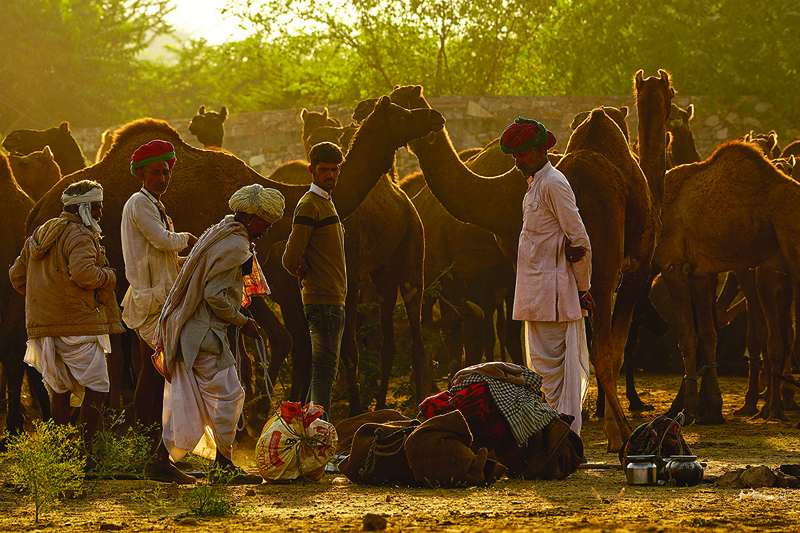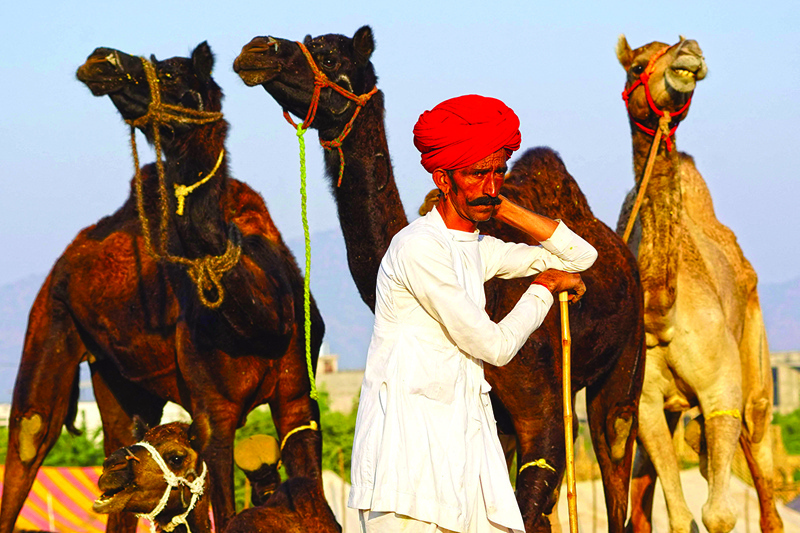 A camel trader arranges his belongings as others look on near their camels at the Pushkar Camel Fair in Pushkar in the northeastern Indian state of Rajasthan.-AFP photos
A camel trader arranges his belongings as others look on near their camels at the Pushkar Camel Fair in Pushkar in the northeastern Indian state of Rajasthan.-AFP photos
Hundreds of herders and their animals gathered in the desert city of Pushkar yesterday for India's biggest camel-trading fair. The northern city typically attracts thousands of Hindu pilgrims, cattle traders and herders for the annual event, but it was called off in 2020 because of the pandemic. The gathering in the desert state of Rajasthan sees traditional camel breeding communities trek sometimes hundreds of kilometers (miles) from their remote villages to trade their animals.
The 13-day fair, which opened on Monday, coincides with several auspicious days in the Hindu calendar, adding to the crowds thronging the revered lakeside city. "Pushkar is about both cattle trading and religious rituals," Prafull Mathur from Rajasthan's animal husbandry department told AFP. "The COVID-19 situation hasn't fully normalized but we still expect a good attendance," Mathur added. Organizers usually hold competitions for camel herders, which are a major attraction for domestic and international tourists, but the government hasn't yet clarified if the contests will be allowed this year.
 A camel trader stands in front of his camels at the Pushkar Camel Fair in Pushkar.
A camel trader stands in front of his camels at the Pushkar Camel Fair in Pushkar.
The fair is the only time of the year when camel breeders-most of whom live in remote, nomadic communities in the desert-can earn cash income that helps sustain their way of life. The camels are mostly purchased by people from Gujarat, Rajasthan and Madhya Pradesh to use on their farms or as transport. Other animals, including horses, are also bought and sold at the event. India's security forces deployed along the international border with Pakistan also use camels extensively to patrol remote stretches.
To help remote camel breeding communities diversify their income, the government has been trying to promote camel milk, camel leather and camel bone products. The region's prominent camel herding community, Raikas, believe that the Hindu god Shiva handed them the responsibility to rear camels. - AFP
.jpg)
